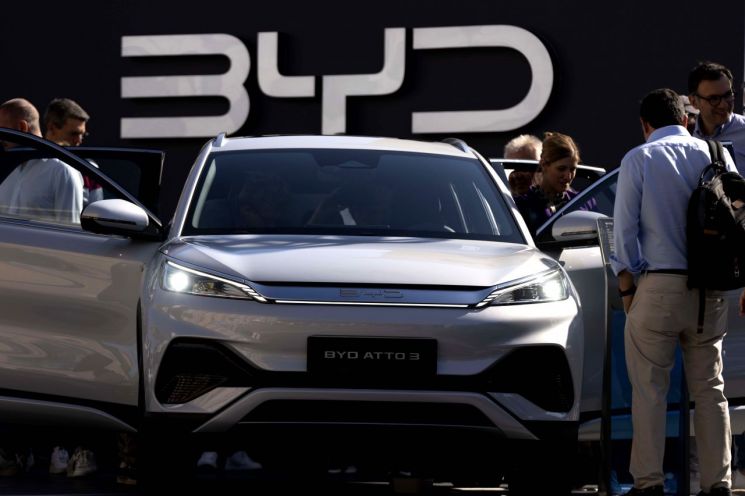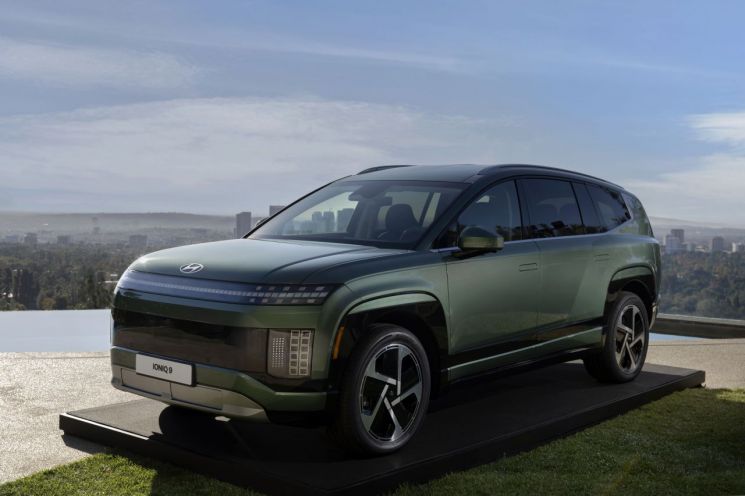Automobile Mobility Association ‘Global Electric Vehicle Market Status’
“Increasing uncertainty threatens sustainability”, ‘One in five new cars registered worldwide this year is an electric vehicle.’
According to the ‘Global Electric Vehicle Market Status from January to May’ report released by the Korea Automobile Mobility Industry Association on the 7th, approximately 7.73 million electric vehicles were sold worldwide from January to May, marking a 33.6% growth compared to the same period last year. Electric vehicles include pure electric vehicles (BEV), plug-in hybrids (PHEV), and hydrogen electric vehicles (FCEV).

AP News
The sales of pure electric vehicles increased by 34.5% compared to the previous year, recording 5.02 million units and accounting for 13.7% of the total new car market. Sales increased in most regions except Japan, with high growth in Europe and China driving this growth.
Sales of plug-in hybrid cars increased by 31.9% compared to the previous year, reaching 2.72 million units. They account for 7.4% of the total new car market.
The global electric vehicle market’s growth was significantly influenced by the largest markets, China and Europe. China, as the biggest market for electric vehicles, saw a 41.1% increase in sales with 5.22 million units, accounting for 40.1% of the total market.
The European market grew by 24.2% compared to the previous year, recording about 1.43 million units, while the U.S. market saw about a 5.7% increase, recording about 600,000 units sold.
In contrast, the Japanese market saw about a 10.3% decrease, down to about 40,000 units, marking a decline for two consecutive years. Despite increasing electric vehicle subsidies, complexities in subsidy reforms, the decline in sales of Nissan’s compact electric cars, a lack of new models, delays in charging infrastructure construction, and strong demand for hybrid vehicles (HEV) contributed to this.
Among manufacturers, the growth of Chinese companies such as BYD was notable.
BYD sold 1.96 million units, a 44.8% increase from the previous year, driven by policies promoting domestic demand, production expansion, and aggressive price cuts. Geely Group, which owns companies like Volvo, Polestar, and Zeekr, grew by 81.8% from the previous year, with 780,000 units sold, overtaking Tesla to take the second spot.
Tesla’s sales declined by 19.0% to 630,000 units due to intensified competition in China, delays in the release of the new Model Y, and negative reactions to Elon Musk’s political actions, leading to reduced sales in China, the U.S., and Europe. Hyundai and Kia ranked 9th with 220,000 units sold.

Yonhap News
Despite the continued growth of the electric vehicle market, the report highlighted the expanding complex uncertainties that threaten long-term sustainability.
The report noted, “The significant market uncertainties in the U.S. electric vehicle market, a major market, due to the Trump 2nd administration’s pursuit of strong pro-internal combustion engine policies, such as the abolition of the Inflation Reduction Act (IRA) incentives, could impact the speed of electrification transition,” and “Chinese companies are exacerbating global price competition through aggressive price cuts and new product launches based on strong government support, raising concerns about declining sales and profitability of non-Chinese major companies.”
Gangnam Hoon, the president of the Automobile Mobility Industry Association, emphasized, “It is essential to encourage corporate technological innovation and production investment through consistent and stable policy support, maintaining a long-term and predictable incentive system,” and said, “this will become a key driver of future industry dominance and the joint growth of the overall related ecosystem.”

